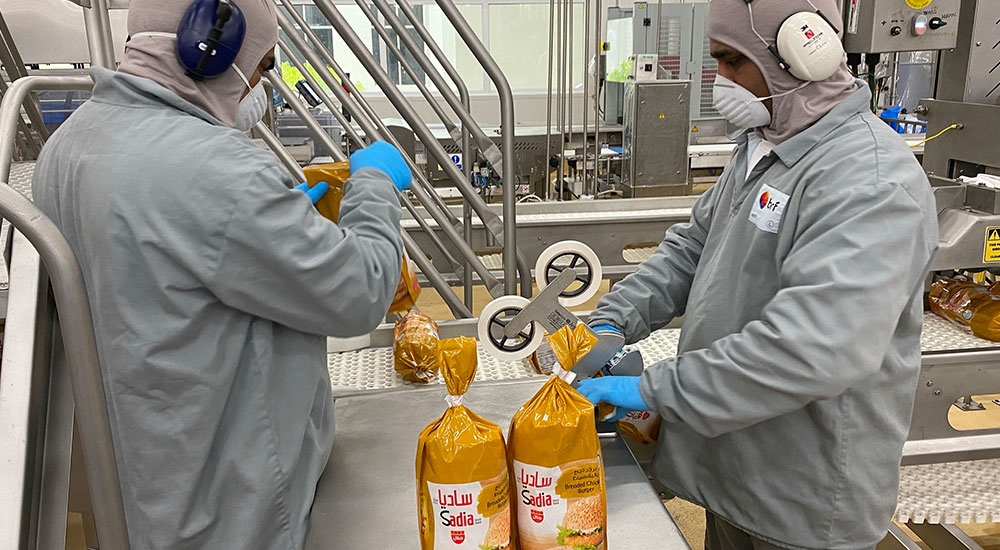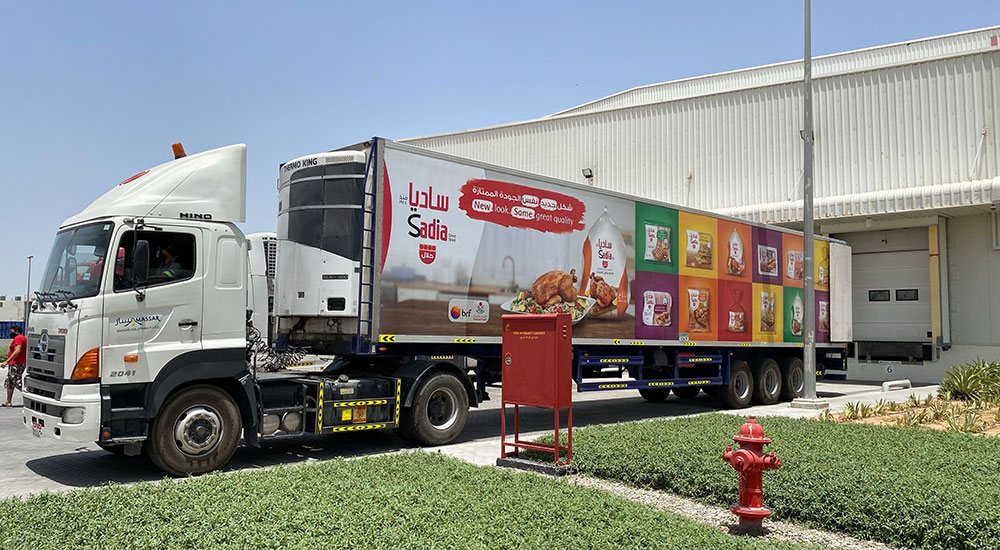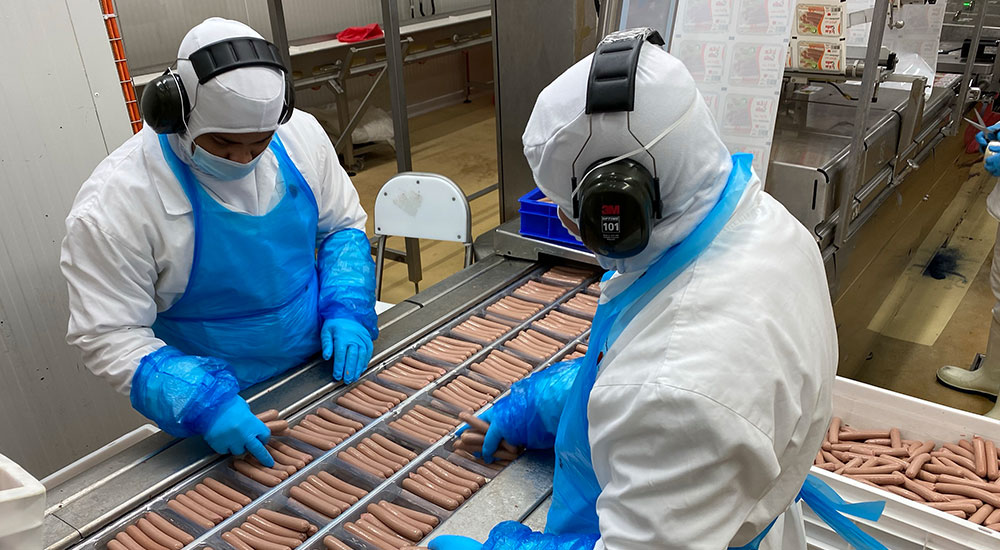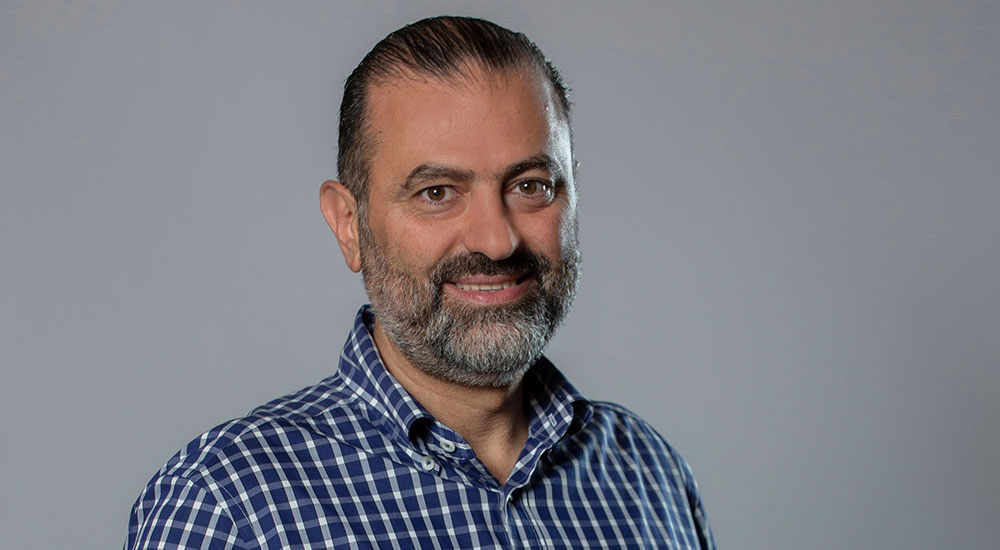How this Halal food producer BRF Sadia weathered the pandemic

BRF is one of the largest food companies in the world, with more than 30 brands in its portfolio, including Sadia, Perdigão, Qualy, Paty, Dánica, Bocatti and Vienissima. It is also the world’s largest poultry exporter and is present in over 140 countries. Its products are marketed in more than 140 countries, on five continents. More than 90,000 employees work in the company, which maintains more than 50 factories in eight countries including Argentina, Brazil, UAE, Netherlands, Malaysia, UK, Thailand and Turkey.
BRF owns 34 manufacturing plants in Brazil, in 10 states, in addition to another 5 plants abroad. Its purpose is to offer increasingly tastier, practical, good-quality food to people around the world through the sustainable management of a vivid, long and complex chain that provides everyone with a better life, from farm to table.
In the Middle East since 1970s, its main brand, Sadia, is the market leader in the chicken category and is recognised as the most preferred brand in the region. The relationship of BRF with the Middle East dates back to the 1970s, when the food production company started exporting to the region.
Primarily under the Sadia brand, BRF has served these markets, especially in branded and value-added products. In 2016, BRF consolidated OneFoods, a subsidiary that positions BRF as a leading Brazilian multinational in Islamic markets and with a high consumer preference, with more than 90% brand recognition.
BRF is today, the leading producer of animal protein in the region and the largest manufacturer of Halal animal products on the planet. BRF has the ambition to advance in key markets that materialise the demand for high quality products, innovation and convenience. Inside the region, BRF produces and distributes Halal products under the brands Banvit, Perdix, and Sadia.

Pre-pandemic preparations
The onset of the pandemic has not affected business operations directly from a supply chain model standpoint. This is mainly because Sadia started taking the necessary precautions as soon as the crisis hit China in beginning of February 2020.
Sadia had been working extremely hard, adhering to its commitment to ensure service and availability of essential products to consumers in the safest way and thus did not wait for the situation to aggravate before taking any safety procedures.
In lieu of the outbreak, Sadia took necessary initiatives to cover facets of business operations across multiple fronts to ensure production would not suffer, and communities are served better especially during the pandemic. Food security is one of the key pillars of company and as such Sadia have taken action to increase safety stock to protect business, brand and most importantly consumers.
Action plan followed by Sadia:
- Contingency plans for workers safety. People are its top priority and hence Sadia put together several precautionary measures and business contingency plans to protect employees in the sudden case of an outbreak at facilities.
- Sadia also restricted entrances to facilities from visitors while maintaining higher connectivity with contractors and suppliers.
- Optimising inventory to increase business efficiency, ensuring streamlined operations without disruption in the supply of products.
- Even though warehousing costs were increasing, Sadia ensured higher stock levels as a contingency plan. Stock levels increased three-fold to guarantee food security – this was done in conjunction with governments and authorities connecting and facilitating all food security programmes.
- Sadia worked hand in hand with authorities and local entities to donate to people who had lost their jobs due to the pandemic or have been affected by the pandemic and needed hospitalisation. This was part of the pandemic Relief effort to provide 1.4 million meals in the GCC region.
- From a local production perspective, the factory in Abu Dhabi delivered shorter lead times to control food security in the country with enough raw materials, and increased stock levels of cooked products for safe consumption.
- Raising awareness about safety protocols and basic hygiene when handling products. Daily swabs, machine cleaning, personal protection equipment availability have become standardised in all offices and factories.

During the pandemic
Sadia offers high quality products that adhere to strictest safety protocols. From a supply chain perspective, Sadia contributed to the flattening of the curve by allowing employees to work from home, wherever possible. Sadia also initiated multiple safety and hygiene awareness campaigns and equipped all frontline and on-field workforce, including sales and production, with all the personal protection equipment required.
Sadia have implemented strict precautionary measures and protocols that comprise of social distancing, mandatory sanitisation for all production facilities, equipping distribution centers and trucks with the proper personal protection equipment, and exercising new shift patterns for production and operations with 30% of workforce capacity. These precautionary measures helped to ensure business continuity and availability of all essential products on the shelves, but also helped in building trust and credibility within employees and consumers.
Now that safety measures are in place on a country-level, Sadia monitors the situation and openly communicates about it with employees and consumers. Empowering team with the right resources and information and informing consumers about supply and production process ensures a sustainable business through these challenging times.
As part of Sadia’s commitment, the health and safety of employees and the communities is top priority. Hence, Sadia introduced several precautionary measures which are also in line with the measures and policies local governments are taking across the globe.
Some key points of protocol include the following:
- Exercising social distancing in warehouses and all other company facilities and offices.
- Implementing mandatory sanitisation of all areas by authorised agencies and the suspension of operations within the warehouse during that period.
- Issuing work permits for all workforces during the curfew and sterilisation programme.
- Diversifying the accommodation of workforce to minimise the risk of spreading the virus, protecting employees and wider population.
- Introducing regular health checks for staff.
- Applying health and safety measures for staff transportation by reducing bus occupancy by 50%.
- Applying new shift patterns and minimising physical presence and interaction among staff with the help of digital tools.
- Introducing additional personal protection equipment materials and equipment for all staff members.
- Launch of effective digital communication channels across all workforce and departments to raise awareness.
To strengthen food security in the region Sadia implemented a three-pronged approach. Firstly, Sadia optimised inventory as per the demand in each country by working closely with regional governments and authorities that are facilitating food security programmes. Secondly, even though warehousing costs were increasing, Sadia ensured higher stock levels as a contingency plan.
Sadia took the initiative to increase the level of stocks 15 days prior of being requested to do so. In doing so, stock levels have increased three-fold to guarantee food security. Lastly, since its merchandisers was quarantined as a precautionary measure, Sadia outsourced merchandising in the view of the increasing demand in the regional market.

Post the pandemic
From an industry point of view, Sadia believe that the food service industry has weathered the storm between March to May. Sadia has started to see the industry pick up momentum as consumers look for more convenient products rather than cooking from scratch as they spend more time at home and try to maintain work-life balance.
In addition, the way government authorities have handled the pandemic within the region has helped restore consumer confidence. However, Sadia needs to be mindful of the new implementations in Saudi Arabia for example, covering increase in VAT and custom duties, that will impact consumer demand. But, with e-commerce platforms rapidly thriving, the industry is bound to bounce back without major effect.
At present Sadia is working with a consulting firm to help navigate the current situation and maintain a commitment to achieving its strategic goals of 2020. the pandemic has accelerated commitment to the GCC as opposed to affecting operations and offerings. For example, business productivity levels are intact, if not increased, whilst working from home.
One of the main reasons for this is open communication across board and culture of innovation that supports us in exploring and adapting to new ways of doing business. There have been no layoffs, nor salary cuts, and Sadia continue to recruit new talent, which is essential for business growth and sustenance.
With this being said, Sadia expects an increase in product costs because of the extensive safety measures implemented in production processes and within workforce, which are necessary until we find a definitive solution to the pandemic.

Key takeaways
- The relationship of BRF with the Middle East dates back to 1970s.
- There have been no layoffs, nor salary cuts, and Sadia continues to recruit new talent.
- Food security is one of the key pillars of the company and Sadia has taken action to increase stock to protect its business.
- Even with warehousing costs increasing, Sadia ensured higher stock levels as a contingency plan.
- Stock levels increased three-fold to guarantee food security in conjunction with governments and authorities.
- Sadia contributed to the flattening of the curve by allowing employees to work from home.
- Sadia expects an increase in product costs because of the safety measures implemented in production processes.
- Sadia took the initiative to increase the level of stocks 15 days prior to being requested.
- Stock levels have increased three-fold to guarantee food security.
- Sadia outsourced merchandising in the view of the increasing demand in the regional market.
- Sadia believes the food service industry has weathered the storm between March to May.
- Sadia has started to see momentum as consumers look for more convenient products rather than cooking.





